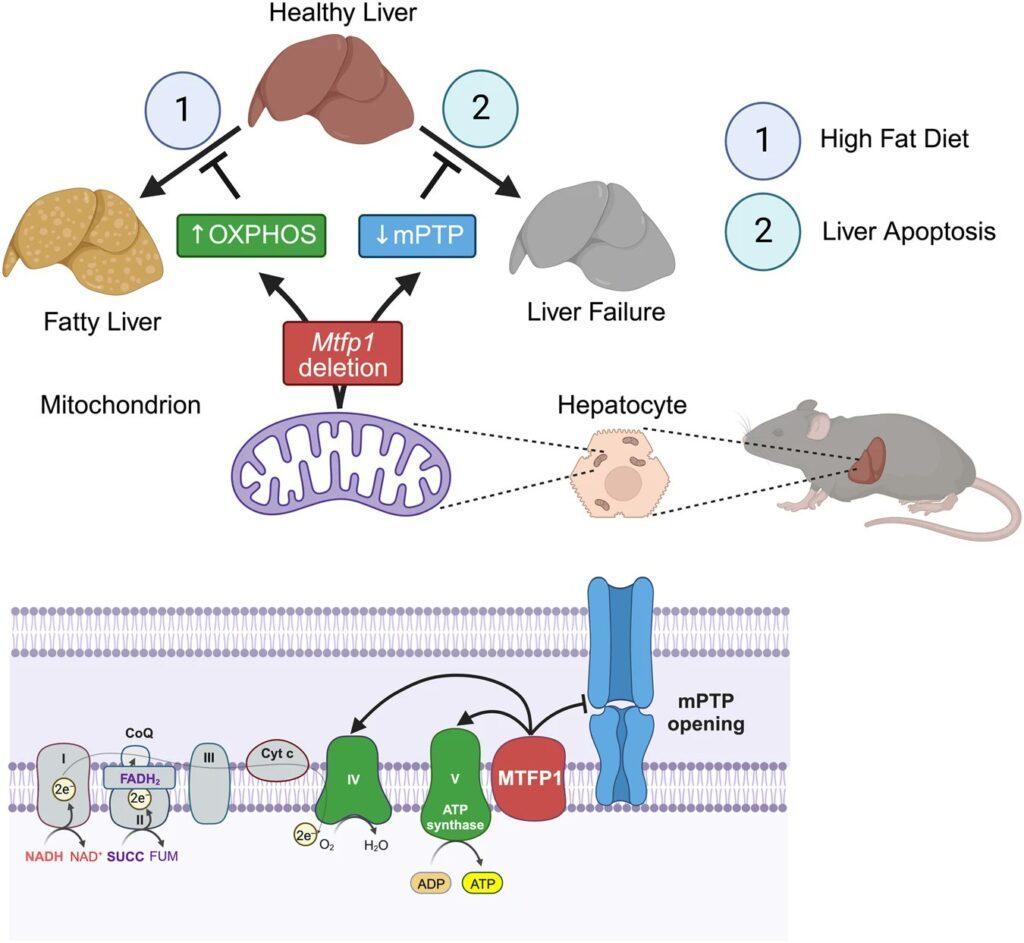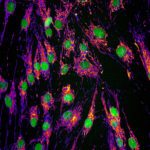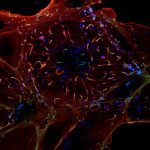Mitochondrial is a multifaceted organelle involved in a variety of cellular functions, from production of ATP via oxidative phosphorylation (which makes it known as the “powerhouse of the cell”) to the regulation of apoptosis and inflammation. Tim Wai’s team investigate the potential role of mitochondria in the progression of the most common chronic liver disease in industrialized countries called Metabolic dysfunction-associated fatty liver disease (MASLD), which is to this date not well understood.
Following a previous work published in 2022 [https://www.nature.com/articles/s41467-022-34316-3] where they have highlighted the role of the Mitochondrial Fission Protein 1 (MTFP1) to preserve the function of the cardiac tissue, they have identified MTFP1 as a key regulator of mitochondrial and metabolic activity in the liver. They showed that Mtfp1 deletion in a mouse model enhances mitochondrial respiration, resulting in protection against hepatic steatosis caused by a fat diet, without impairing basal liver functions. Mtfp1 deletion in hepatocytes also protects against liver apoptosis through the inhibition of mitochondrial permeability transition pore (mTPT) opening. This work establishes MTFP1 as a potential therapeutic target to treat MASLD, a leading cause of cirrhosis and hepatocellular carcinoma.

Cecilia Patitucci, Juan Diego Hernández-Camacho, Elodie Vimont, Sonny Yde, Thomas Cokelaer, Thibault Chaze, Quentin Giai Gianetto, Mariette Matondo, Anastasia Gazi, Ivan Nemazanyy, David A. Stroud, Daniella H. Hock, Erminia Donnarumma, Timothy Wai
Mtfp1 ablation enhances mitochondrial respiration and protects against hepatic steatosis, Nature Communications, December 20, 2023





